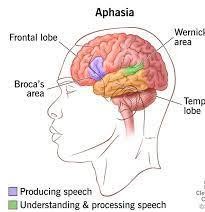A client with a 16-year history of diabetes mellitus is having renal function tests because of recent fatigue, weakness, elevated blood urea nitrogen, and serum creatinine levels. Which finding should the nurse conclude as an early symptom of renal insufficiency?
Stomatitis and Diarrhea
Dyspnea and Anuria
Confusion and Vomiting
Nocturia and Oliguria
The Correct Answer is D
Choice A rationale: These are symptoms of advance renal failure. Stomatitis and diarrhea are signs of uremia, which is the accumulation of waste products in the blood.
Choice B rationale: Dyspnea and anuria are signs of fluid overload and kidney shutdown and indicate advanced renal failure.
Choice C rationale: Confusion and vomiting are signs of acidosis and electrolyte disturbances and occur in advanced stages of renal failure.
Choice D rationale: One of the early symptoms of renal insufficiency is nocturia, which is the need to urinate frequently at night. This occurs because the kidneys are unable to concentrate urine during the day and produce more urine at night. Another early symptom is oliguria, which is the production of less than 400 mL of urine per day. This occurs because the kidneys are unable to excrete enough urine to maintain fluid balance.
Nursing Test Bank
Naxlex Comprehensive Predictor Exams
Related Questions
Correct Answer is B
Explanation
Choice A rationale: Intubation and mechanical ventilation may be needed if the respiratory muscles are affected by GBS, but this is not a routine intervention at this stage.
Choice B rationale: One of the main treatments of GBS is IV immunoglobulin therapy (IVIG), which involves infusing antibodies from donated blood plasma to block the harmful immune response that damages the nerves. Sandoglobulin is one of the brand names of IVIG used for GBS. IVIG can help shorten the duration and severity of the disease, and improve the recovery rate.
Choice C rationale: Methylprednisolone is a corticosteroid that can reduce inflammation, but it is not recommended for GBS, as it may worsen the condition or increase the risk of infection.
Choice D rationale: NG feeding tube may be required if the patient has difficulty swallowing, but this is also not a standard intervention at this time.
Correct Answer is A
Explanation
Choice A rationale: The frontal lobe, specifically Broca's area located in the dominant hemisphere, is responsible for expressive speech. Damage to this area can result in expressive aphasia or difficulty expressing speech.
Choice B rationale: The occipital lobe primarily processes visual information.
Choice C rationale: The temporal lobe is involved in auditory processing and language comprehension.
Choice D rationale: The parietal lobe is involved in spatial perception, attention, and sensory information processing.
 |
Whether you are a student looking to ace your exams or a practicing nurse seeking to enhance your expertise , our nursing education contents will empower you with the confidence and competence to make a difference in the lives of patients and become a respected leader in the healthcare field.
Visit Naxlex, invest in your future and unlock endless possibilities with our unparalleled nursing education contents today
Report Wrong Answer on the Current Question
Do you disagree with the answer? If yes, what is your expected answer? Explain.
Kindly be descriptive with the issue you are facing.
